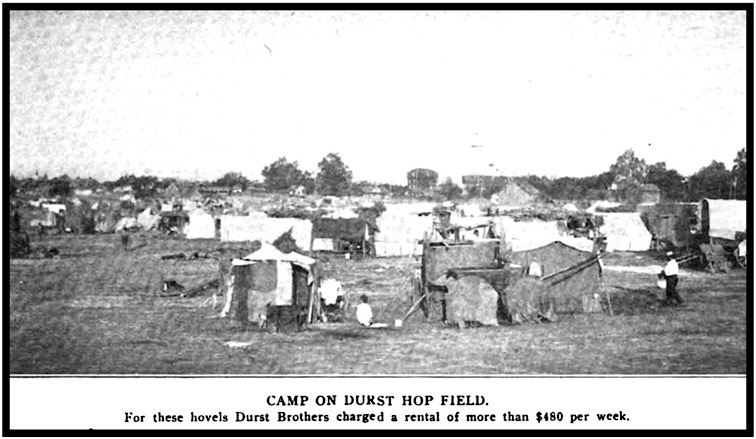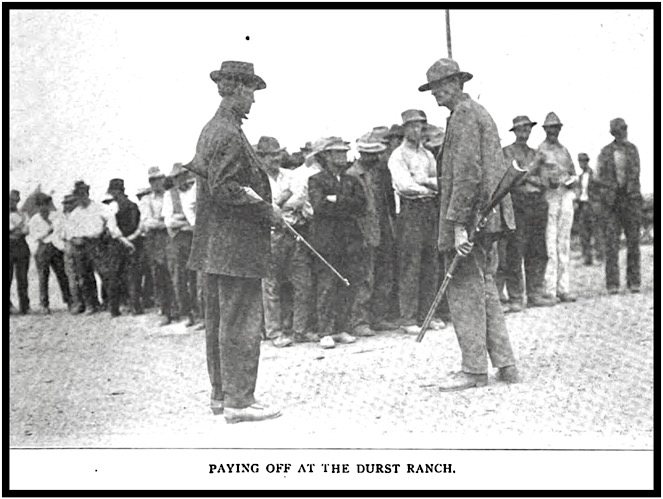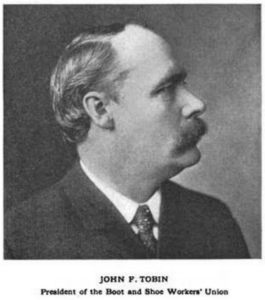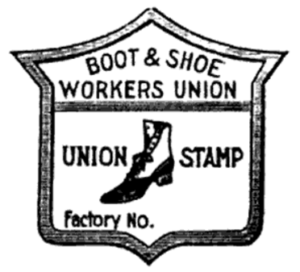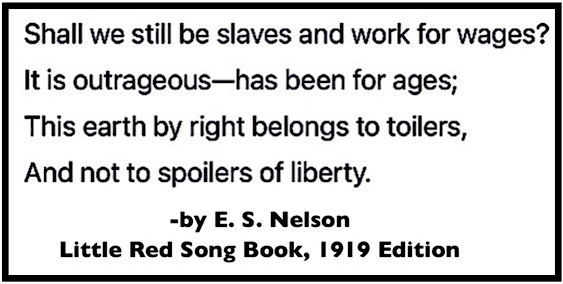 —————
—————
Hellraisers Journal – Friday October 3, 1913
Wheatland, California – Hop Pickers on Durst Brothers Meet and Issue Demands
From the International Socialist Review of October 1913:
—–
[Part I of II.]
ACTING on an invitation by Durst brothers twenty-three hundred men, women and children assembled to pick the Durst Brothers’ hops on their 600-acre ranch near the town of Wheatland, California. The posters and newspaper advertisements described the conditions on the Durst ranch as something ideal. All the workers had to do was to pick a few hops, enjoy a picnic and make plenty of money.
Just prior to August 3 these people assembled at the Durst ranch and found the first thing they had to do was to rent a shack or a tent from agents of the owners at the rate of from 75 cents per week up. The first money they earned was deducted to pay this rent. The rentals charged the pickers were in excess of $480 per week for four acres of ground which the state health inspector has described as a “sun-baked flat.” This in itself was a rather tidy profit for the boss.
It was soon found that Durst Brothers had provided only six single toilets for the twenty-three hundred workers. These apologies for modesty were turned over to the women, who used to stand twenty and thirty deep waiting a turn to use these places, while the whole camp looked on. Later it was found, when the men and women swarmed into the fields to pick the hops, that a cousin of the Durst Brothers had the “lemonade privilege.” In order that this thrifty scion of canny stock should have every opportunity to make an honest penny, Durst Brothers would not permit any water to be hauled into the field, nor would they allow the workers to fill bottles from the water wagons which were used in cultivating the crop. Lemonade was sold to the workers at five cents per glass.
Pay at this hop yard was at the rate of 90 cents per hundred pounds of hops picked with a sliding bonus up to 15 cents, according to the length of time the worker staid on the job. Durst Brothers were particularly urgent that the hops should be absolutely clean of leaves or stems and that only the blooms should be taken. This rigid inspection made the work far slower than in other hop yards.
Conditions were so bad that after one or two days’ work the pickers assembled in meeting and voiced their discontent. They drew up demands for better sanitary conditions, more toilets, that lemons and not acetic acid should be put in the lemonade; that they should have water in the field twice a day, that high pole men be provided to pull down the hops from the poles, and that owing to the strict inspection of the pick that the pay be a flat rate of $1.25 per hundred pounds. This would enable an average worker to earn about $2 per day, out of which he had to pay for his shack and board himself.
These demands were presented to Durst Brothers by a committee. Ralph Durst, testifying before the coroner’s jury, stated that when Dick Ford, the chairman, approached him he “had both his gloves on and that he jocosely slapped Ford across the face.” He then took the demands under consideration. After a time he returned and made evasive promises of remedy of the sanitary conditions, talked a lot about having water in the field and flatly refused to advance the wages. This was on Sunday afternoon, August 3. The workers remained in meeting and were considering the reply of Durst. While they were so assembled Durst telephoned to the nearby town of Marysville for the sheriff and a posse. [to be continued…]
[Emphasis added.]

